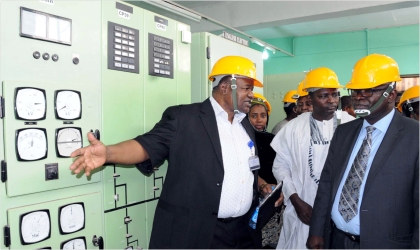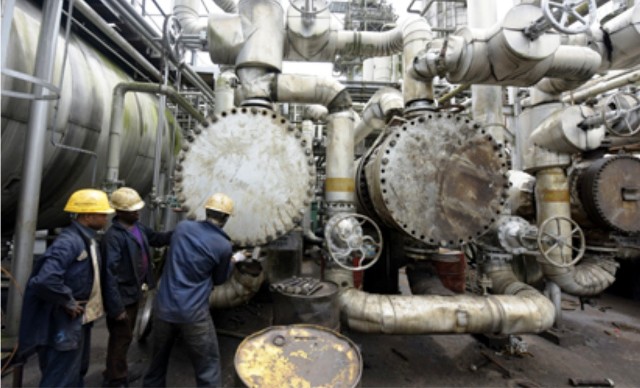Business
Expert Wants TCN Decentralisation To Attract Investors

Towards proffering solution to the perennial collapse of the national grid, the co-founder of PUTTRU, Monica Maduekwe, has called for an urgent decentralisation of the activities of the Transmission Company of Nigeria (TCN).
PUTTRU, an African digital platform that connects energy companies in the continent to global financiers, stated this in a recent statement made available to The Tide’s source.
According to the statement, Maduekwe canvassed an urgent decentralisation of the activities of the TCN, after enacting the necessary laws currently being promoted in the ongoing constitutional reforms.
She stated that it would not only boost investments in the sector, but also help states with such capacities to broaden their energy potentials.
The platform decried the huge losses to the economy on account of poor electricity, saying that legislation in this regard would be a game-changer in the electricity sector.
“In Nigeria, the function of planning and dispatching electricity from power generators feeding electricity into the national grid is centralised and done by a single system operator, the TCN, who is also the transmission service provider.
“Nigeria currently has the capacity to generate more electricity than is made available to consumers”, the statement read in part.
It continued that “in January, this year, Nigerians were made aware that in 2021, although having an available capacity of 6,336.52 MW, only 4,118.98 MW was fed to the national grid. From 2015 to 2021, it is reported that generators in Nigeria have lost about N1.632tn
“Due to challenges in our transmission and distribution infrastructure, power generators are compelled to reduce their capacity, or the electricity produced is rejected by the system operator.
“This situation is hampering investment across Nigeria’s power sector. The Bill obviously seeks to enable states to bypass these systemic challenges. And, if passed, such a Bill will indeed do so for states that have a clear strategy and managerial capacity to execute this, thus increasing electricity available to those states.
“However, this may lead to revenue losses for some incumbent market participants, including the national grid system operator – but, considering the new market opportunities this could create for TCN; this structure presents a more positive outlook than negative for the public entity, it stated
The statement explained further that if passed to law, the Bill “could be the game-changer for Nigeria’s power sector as it could fast-track, and lead to, a more competitive market structure as envisaged in the market rules for the Nigerian Electricity Supply Industry.
“Although the market still exhibits features of the transitional stage, in the medium-term market, Nigeria will implement a balancing market where electricity will be traded in a spot market.
“A reliable transmission and distribution system would be essential for this to exist and having state-level markets, and simplification by decentralisation, could enable the country to tackle the perennial system constraints stifling the power sector,” she said.
Business
IPMAN Wants Marketers To Patronize PH Refinery

Business
Customs To Facilitate Trade, Generate Revenue At Industrial Command

Business
FG To Ban Overloaded Petrol Trucks
-
Nation19 hours ago
Ekpeye People Urge TotalEnergies To Site Gas Treatment Plant In Their Domain
-
News20 hours ago
Our Governance Gives Peace, Offers Rivers People Freedom – Fubara
-
Business18 hours ago
Oil Pollution: NNPCL Subsidiary To Appear Before Reps, March 4
-
Rivers20 hours ago
Fubara Ready To Partner Army Against Vandalism
-
Politics17 hours ago
APC Lawyers Express Security Concerns At Benue LG Polls Tribunal Venues
-
Business19 hours ago
Customs Broker Cautions FG Over N12trn Revenue Target … Harps On Trade Balance
-
News20 hours ago
Nigeria Seeks EU Approval To Import Non-Hazardous Waste
-
Business18 hours ago
FG To Ban Overloaded Petrol Trucks

